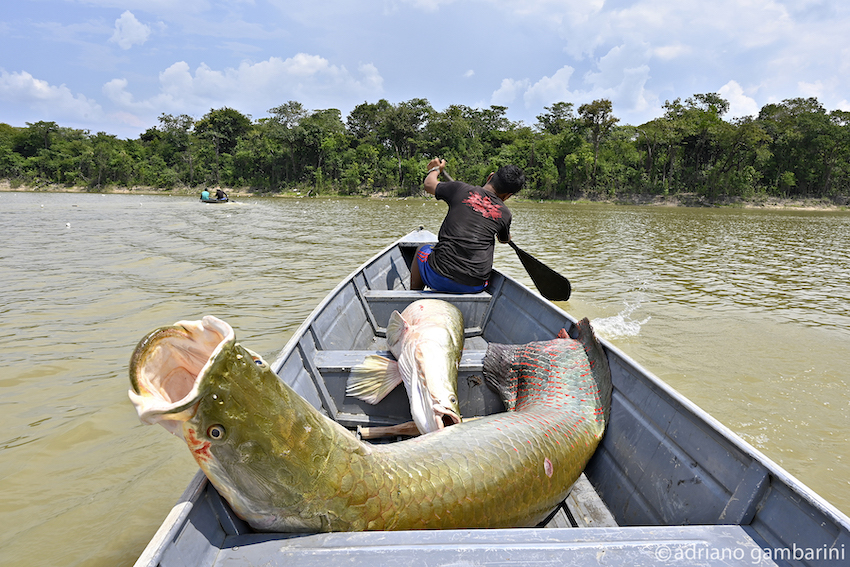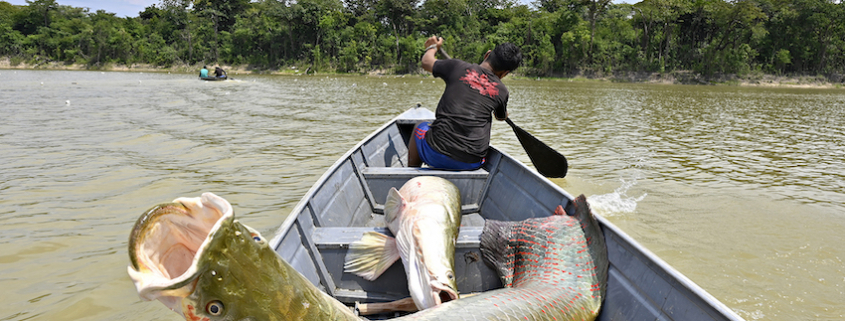Arapaima guardians

After fishing in the nets, the arapaima is quickly transported by canoes on the Tapauá River, in Amazon state, until reaching the floating platforms, where they are cleaned and then frozen. Photo: Adriano Gambarini
Adriano Gambarini
They are known as the People of the Waters, but they could easily be baptized as Guardians of the Lakes, or rather, of the Arapaima. The Paumari indigenous people, from the Tapauá River region (Amazonas state), carry in history the reputation of being excellent fishermen, mainly of the giants of the Amazon waters.
In small canoes and with four-meter-long harpoons, they used to spend hours studying the habits of the fish, which has the behavior of floating at defined intervals to breath. When the fish rose to the surface, the harpoon’s movement was accurate. But over time, with the increasingly intense contact with the whites, the Paumari ended up allowing professional fishermen with their fishing boats to enter the dozens of lakes that permeate their lands, causing an immense impact and decline in the arapaima population.
With the support of one of the oldest indigenous organizations in Brazil, Operation Native Amazon (OPAN), through the Roots Project, sponsored by Petrobras, the Paumari prohibited fishing by traders and fishermen on their lands for five years, and made sure that there were no new invasions. They abandoned the old harpoon tradition and started using huge fishing nets. The arapaima has the behavior of leaving the rivers and going to the lakes that seasonally become communicable. They remain there during the breeding season and spawn all the time until the next flood, when they return to the rivers.
In this period of isolation in the lakes, the Paumari currently work with sustainable fishing, through the management of the arapaima population in that particular year and alternating fishing in different lakes. This made it possible for the arapaima stock to increase considerably and account for, today, an increase of more than 600% in 16 monitored lakes. They established an extremely organized fishing protocol, in which all stages, from removing the fish from the lake, transport, cleaning to freezing, are inspected and rigorously timed. This made the managed fish, known as Pirarucu Selvagem (Wild Arapaima), accepted by major consumer centers such as Rio de Janeiro, São Paulo and Curitiba, with the support of some of its haute cuisine chefs.
I have been documenting the work of the Paumari since 2013. It is fascinating to see the peoples of the forest take their own traditions in their hands, to realize the power they carry and its immense value. It is not new, especially in conscientious countries, that the valorization of these networks of production chains has been gaining strength. It is essential, for the modern world to continue to exist, that we know the origin of the products we consume. Where it comes from, who is at the beginning of this production, what is the structural and economic benefit for everyone involved. Thinking collectively is the only way we can continue to exist on this still wonderful planet.

 Adriano Gambarini
Adriano Gambarini
Leave a comment